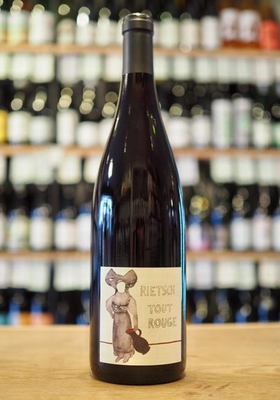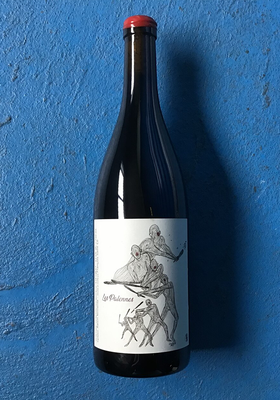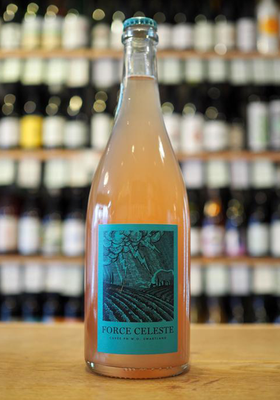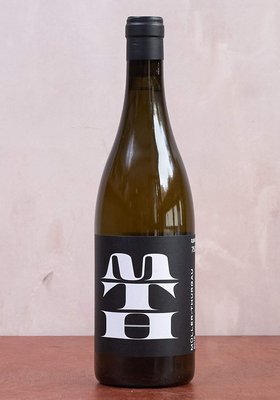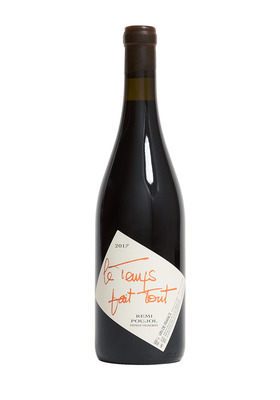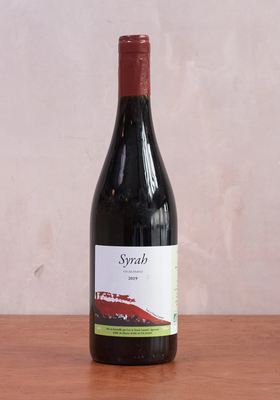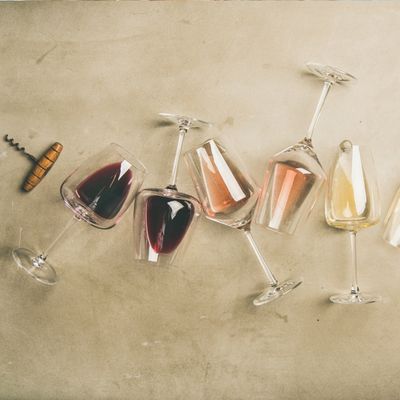
What To Know About Natural Wine
First up, what is natural wine?
Natural wine doesn’t have a legal definition, but at Top Cuvèe, we view it as wine made using fruit grown with organic or biodynamic practises and then vinified without much intervention. There’s nothing added (such as sugar in the common practise of chaptalisation) and nothing taken away (for example using reverse osmosis, fining or heavy filtration).
And what’s the difference between natural wine and organic wine?
Organic is a method of farming. Natural wine refers more to the overall ideology behind the winemaking. Not all organic wine is natural, and not all-natural wines are certified organic.
Is there a difference in taste?
For me, the taste of natural wine is far more expressive. Wines without sulphur really show the whole spectrum of flavour from the grapes, and jump out of the glass. A small sulphur addition at bottling won’t mute it too much, but a lot of sulphur can really take away flavours. Sulphur is used as a stabiliser/preservative for wines – it’s an antioxidant, so it also kills yeast and other bacteria. Some winemakers will add very small amounts at bottling to ensure their wines will be stable for travel. More conventional winemaking may include the addition of sulphur to unfermented juice or at other times during the winemaking process to help control the fermentation.
You’re not the only natural wine bar in London. Why is it so popular at the moment?
People are generally more conscious about their health, aware of the things they are putting into their body and have a desire to do the right thing for the planet. Making green choices is now becoming a popular life choice, which is great. Some people like to go with what’s popular, and that’s fine too. The more the merrier.
Didn’t natural wine used to be considered a bit dodgy when it came to quality control?
Natural wine has been made well and badly forever. The notion that the wine is ‘dodgy’ may relate to the fact that sometimes can be a little unstable once opened or that they taste different from year to year. In my opinion, this should be celebrated – I’d be very sceptical if I bought a fruit juice that tasted the same after being open for a few days, so why should it be any different with wine? One of my favourite things is opening a new vintage from a favourite producer and seeing what flavours this particular year has afforded them. I’m a big fan of Sylvan Bock, Domaine Matassa, Domaine de L'Octavin and Brand Brothers.
Are there any regions that make natural wine really well?
There’s plenty of little pockets around France, regions such as the Jura and the Ardeche have big natural wine communities – as is also the case in Italy and other Old-World regions. Increasingly you can find people making wine in a natural way wherever there are grapes being grown. Tillingham and Offbeat Wines are great English producers.
What is ‘Pet Nat’?
Pétillant-naturel, or naturally sparkling wine, finishes its initial fermentation in a closed bottle so the CO2 generated inside has nowhere to escape. The result is a delicious sparkling wine. Its popularity could be down to the fact that everyone likes fizzy wine full of energy and flavour and the term ‘pet nat’ is a recognisable phrase that's easily repeatable in shops or restaurants. It’s a quick way of getting what your point across.
Is natural wine healthier than normal wine?
It depends on your attitude towards additives – if you view artificial colouring as unhealthy for human consumption, then you’d agree that natural wine with nothing added is certainly healthier than a wine made with added colouring. I prefer to drink natural wine because of the flavour.
Are you a fan of orange wine?
Yes. It’s such a diverse category of wine, and so much of it goes well with food. Orange wine is a category of wine made with white grapes but where the grape skins are left to macerate with the juice, similar to the process of making red wine. This maceration can be long or short to bring out different flavours. A good analogy is brewing a cup of tea, with the grape skins in place of a tea bag: the longer you “brew” it, the more tannins and deeper extraction you get. A short maceration might result in a more delicate, floral orange wine.
And where are the best places to try it in London?
Obviously, I’m biased, but Top Cuvèe has the whole selection from our online store available to drink in the restaurant for only £15 corkage, which basically translates to a massive wine list that rewards trying multiple bottles. P.Franco in Clapton used to be good for getting pretty messy (think drinking stood up with friends and opening bottles straight from the shelves). Now they’re refocusing on great food, offering a set menu with the same expertly curated selection of wines. Salon is amazing neighbourhood restaurant in Brixton with a great wine list, run by the most-friendly people. And 40 Maltby Street is located in a beautiful warehouse setting in Bermondsey, which doubles as the storage space for its wine importation business, so there’s always plenty of bottles on hand. The staff are lovely, so if you let them know you’re up for trying new things, they’ll always pull out the good stuff.
Inspired? Here are Brodie’s top bottles to try…
Domaine Rietsch, Pinot Noir, £26
Nice example of pinot noir from Alsace, where it tends to be leaner than its counterpart from Burgundy.
Buy here: GnarlyVines.co.uk
Francois Saint-Lo, Les Palennes, £33
A very intense cabernet franc from the Rue des Belles Caves collective in the centre of the Loire Valley.
Buy here: WaywardWines.co.uk
Mother Rock, Force Celeste, Cuvée Pet Nat, £21
A mix of red and white grapes fermented into a fun pet nat. Easy drinking for any occasion.
Buy here: GnarlyVines.co.uk
Andi Weigand, White, Muller Thurgau, £24
Lovely fresh blend of white native grapes from Germany. Good balance of acidity makes the perfect aperitif.
Buy here: ShopCuvee.com
RemI Poujol Le Temps Fait Tout Rouge, £22
A pure, great-value blend of carignan, grenache and syrah from Languedoc-Roussillon.
Buy here: LowIntervention.com
Denis Lattard, Syrah, £17
A great rustic syrah with no sulphur. Perfect table wine.
Buy here: ShopCuvee.com
Top Cuvèe, 177 Blackstock Road, Highbury, N5 2LL
Visit TopCuvee.com
DISCLAIMER: We endeavour to always credit the correct original source of every image we use. If you think a credit may be incorrect, please contact us at info@sheerluxe.com.
